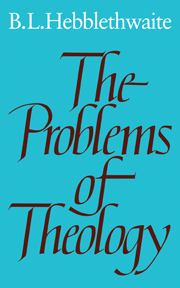8 - The problem of doctrine today
Published online by Cambridge University Press: 30 September 2009
Summary
Is doctrine important?
Anthropologists have concentrated attention on religious rites and the role which they play in the lives of different peoples. Sociologists have concentrated attention on religious institutions and their function in society. Much has been said about the way in which religious symbols and myths bring to expression deep-rooted psychological and cultural constants in human life. As we saw in the last chapter, it is possible to concentrate on the ethical dimension of religion to the neglect or exclusion of others, so that religion is seen simply as a means of reinforcing an all-embracing moral ideal. All these approaches encourage us to play down the place of doctrines and beliefs in religion. But closer phenomenological attention to the history of religions shows that explicitly or implicitly the rituals, institutions and practices of the religions are shaped and conditioned by beliefs, which can be made the object of critical reflection, if not always by the participant, then by the student of religion.
Clearly these beliefs are often very primitive, and intelligible only in relation to the pre-scientific world-view of non-literate tribes or early civilisations. Even the theologian can hardly take them at their face value, but will interpret them as highly inadequate means of expressing some sense of the holy or of the divine. But in the course of time, and usually under the influence of major creative religious personalities, the so-called ‘higher’ religions have developed systematic and all-embracing doctrinal schemes, spelling out what they see as the fundamental truths about the world and man.
Information
- Type
- Chapter
- Information
- The Problems of Theology , pp. 142 - 157Publisher: Cambridge University PressPrint publication year: 1980
